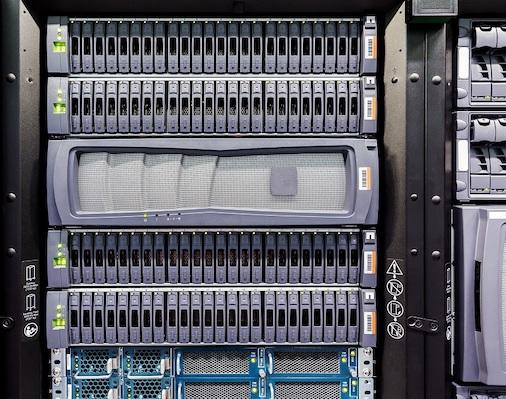Data storage solutions: 3 best options
| February 2, 2021

A data storage solution allows you to grow business operations and stay in control of information. The correct storage solution keeps datasets safe and analytics measurable. Whether hot or cold data storage, understanding the available options ensures information doesn’t become fragmented.
A day-to-day influx of data allows teams to make better decisions and utilize analytics to fully serve their customers. But any success relies heavily on how you store your data. Here we look at three storage solution options.

Cloud-based storage
Cloud-based storage is the market leader in how businesses choose to securely manage, share and access data. External host servers are maintained by third parties. There is a pay-as-you-go quality to your purchase and scaling is easy. The cloud is a data storage solution that’s great for businesses looking to grow. There is a range of offerings from Google Drive to industry giant Amazon (AWS).
Data storage provides teams with universal access and seamless expansion options regardless of volume. The cloud works on multiple devices and has robust, global features. Data security is often advanced and taken care of for you. With several cloud-storage packages, innovation in how you scale is accommodated through tier packages that anticipate business needs.
Cloud storage removes the expense of accommodating hard drives or upgrading existing servers. Storing online ensures any environmental damages won’t affect your information and you always stay connected.
Cloud-based storage benefits:
- Accessible anywhere
- Limitless storage potential
- Entry points at every level

Storage area network (SAN)
A storage area network (SAN) is an on-premise solution made accessible via servers and computers. It functions as a community space for colleagues. Information is shared in a pool among a group of users connected to a high-speed server. Consolidation of data is a focus area of a SAN as storage devices are operated via internal servers. A SAN gives smaller teams uniformity and makes data available to be accessed at high speed.
SAN is an in-house data storage solution that requires computers and devices to be interconnected. It’s an example of data virtualization and a popular choice for smaller businesses. It also frees up space on Local Area networks (LAN) that act more on the frontline of data sharing.
Storage area network benefits:
- Reliable recovery of data
- Fault-resistant to drive failure
- Speeds up other networks
Network asset storage (NAS)
Network Asset Storage (NAS) consists of low-cost file sharing storage devices. These are popular with smaller businesses. It’s like cloud storage but on a smaller scale and is considered in-office file storage. NAS systems support email, databases and analytics among other common business functions. A NAS has the ability to serve files via hardware and software.
Network asset storage benefits:
- Simple to operate
- Supports multiple applications
- Access across networks
The ability to access data at speed and share information securely should influence any purchase decision you make. As technology constantly evolves and new ways to manage data emerge in the big tech landscape, you need a solution that can keep up with the times. You also need storage that can accommodate huge volumes of datasets. Consider cloud storage when it comes to making room for business growth through this scalable service.
